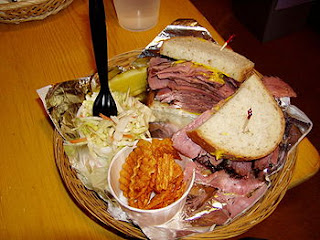“I know that not everyone shares the same view, and I am not asking them to. It’s about starting a conversation and opening the dialogue. Art can do that.”
Handout
CAST OUT
05.08.155:15 AM ET
Snowden and Assange Are Bronze Gods in Berlin
Statues are typically erected in honor of individuals who have significantly contributed to humanity—whether these statues are cast in gold or bronze, they serve as public reminders of heroic deeds, lofty ideals, or both.
Sometimes they commemorate heroes, often soldiers, who have sacrificed themselves for a higher cause. Sometimes, they are artists, thinkers, or scientists whose contribution to humanity is widely known.
But never have they been government whistleblowers—or traitors as they are seen in the eyes of many.
First came that bust of Edward Snowden that appeared in Brooklyn’s Fort Greene Park last month.
Then on May 1, on a much grander scale, a group of activists, artists, and members of the Germany Green Party unveiled three bronze statues of Julian Assange, Edward Snowden, and Chelsea Manning (cast before her gender transition) in Alexanderplatz Square in Berlin.
Each statue stood on a chair, while a fourth chair remained open as an invitation for viewers to come and stand next to the controversial heroes.
The statues are part of a public art project, “Anything to Say,” and the brainchild of British journalist Charles Glass and Italian sculptor Davide Dormino.
Glass and Dormino met what in 2008 through a mutual friend. Both shared the same views about the revelations by WikiLeaks that the U.S. National Security Agency (NSA) had been lying about recording and storing domestic and international phone calls, and wanted to spearhead a project that would make a statement about the importance of freedom and truth today.
Glass, who is a seasoned journalist, is also the founder of the Committee in Defense of WikiLeaks’ Right to Publish, and has been outspoken about his support for Assange and the other whistleblowers since the beginning.
He was drawn to Dormino’s work and together they created the concept of staging the three statues in city squares around the world.
For Dormino, art is always political and his work as an artist has evolved to encompass his political beliefs about freedom and truth.
“The fourth chair is meant to encourage people to do the same—to consider what these three men have done. Do they have anything to say?”
Speaking from his studio in Rome, puffing away on a cigarette, Dormino said, “You know the movie Dead Poets’ Society? Remember the scene when Robin Williams tells the boys to get up on their chairs—so their point of view will change? That’s what I had in mind with the statues standing on the chairs. I wanted Assange, Manning, and Snowden to be honored, but I also wanted something else to symbolize the courage they had to change people’s points of views and tell the truth. The fourth chair is meant to encourage people to do the same—to consider what these three men have done. Do they have anything to say?”
Dormino flew to London in 2011 to meet Assange at the Ecuadorian Embassy where Assange claimed asylum after fleeing the U.S. three years ago. He wanted Assange’s approval of the project. “He [Assange] was thrilled and liked the concept.”
Although the public view in the U.S. of whether Assange, Snowden, and Manning are heroes may be split, they are widely revered in Berlin.
It was the German paper, Der Spiegel, along with British paper The Guardian that published the NSA leaks.
WikiLeaks editor, Sarah Harrison, now the head of the Courage Foundation, still resides in London, along with Laura Poitras, the filmmaker behind Citizenfour(2014), the award-winning documentary about Edward Snowden. Both were present at the “Anything to Say” unveiling on May 1.
Dormino says that, in general, reactions to the public art project have been positive. The director of Berlin’s International literary festival, Ulrich Schreiber, was a key supporter along with Reporters Without Borders, and Hans-Christian Ströbele, a lawyer and member of the German party Alliance ’90/The Greens.
The Green Liberal party, in particular, has given its strong backing to the project. Dormino claims that other countries have asked him to come and present the statues in their city squares.
The project will be heading next to Dresden and onward to Lausanne, Moscow, Perugia in Italy, Spain, and Portugal. Berkeley, California, is also set to host the statues.
The figures have been well received in Berlin, though on the looming question of how these statues will be received elsewhere, Dormino admits, “I know that not everyone shares the same view, and I am not asking them to. It’s about starting a conversation and opening the dialogue. Art can do that.”

Comments